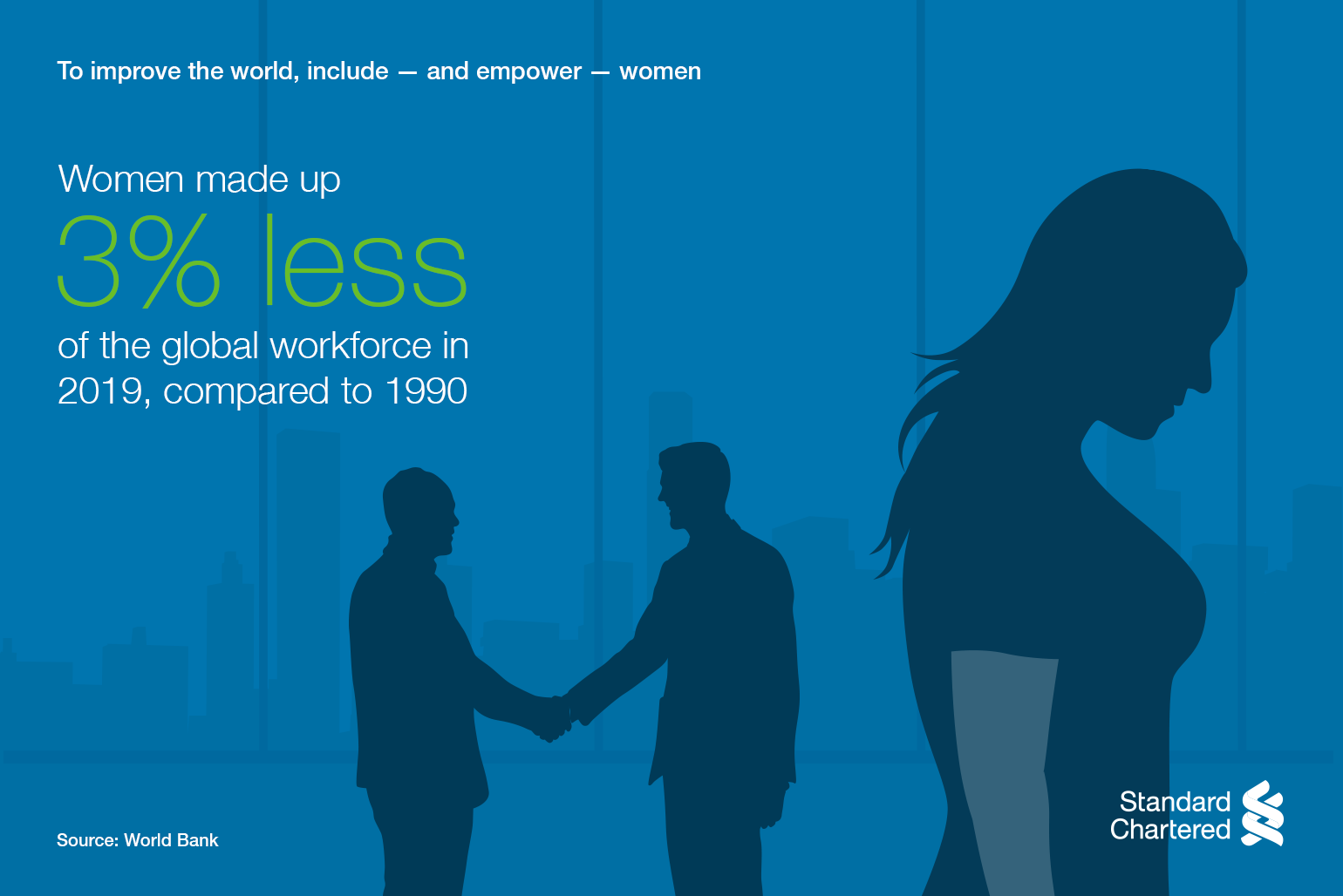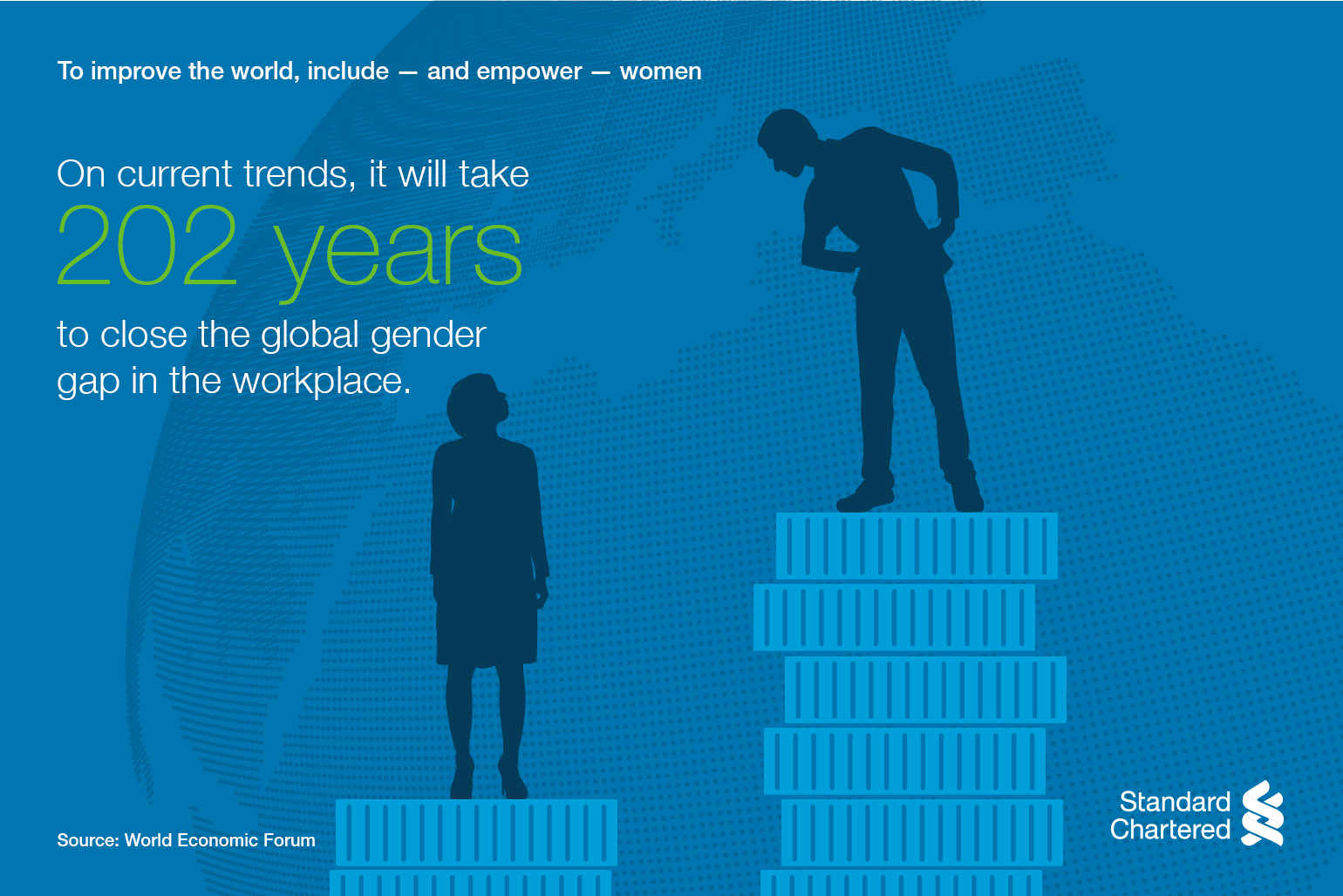To improve the world, include — and empower — women


Although the world is progressing, the number of women in the global workforce is declining, due to factors such as cultural restrictions and lack of employment opportunities.
In 2018, women made up 47.9 per cent of the global workforce, down from 50.9 per cent in 1990. More surprising is that in 2019, only 6.6 per cent of CEOs of Fortune 500 companies are women.
But including and empowering women, particularly in senior roles, could be key to unlocking positive trickle-down effects for generations.

Former United Nations Secretary-General Kofi Annan declared that “there is no tool for development more effective than the empowerment of women”.
Everybody wins when women are included and given equal opportunities at work. Gender discrimination in the workforce costs the world US$12 trillion annually, according to the Organisation for Economic Co-operation and Development (OECD). Costs are even greater where women and girls experience violence and harassment in the workplace.
Conversely, levelling the playing field for women could stimulate global income growth and improve productivity and performance.

For Bishwo Khadka, director of Maiti Nepal, a non-profit organisation dedicated to helping victims of sex trafficking, empowering women is key to protecting human rights.
“Education, health, job opportunities and prospects of economic growth should be made accessible to all,” he says. “I would like to see a just, equitable and serene Nepali society where no child or woman is subjected to any sort of violence and exploitation.”
Recently, global initiative Futuremakers by Standard Chartered supported Maiti Nepal’s project to produce low-cost sanitary pads. The partnership provided vulnerable women and trafficking victims with training and jobs. It also made sanitary pads more affordable and accessible in communities where taboo women’s issues like menstrual hygiene have been excluded for too long. Now is the time for change.
According to Bishwo, “Livelihood trainings and subsequent job placement have the greatest impact for [women’s] empowerment.” To date, Maiti Nepal has rescued close to 40,000 vulnerable children and women from being trafficked. It has prosecuted over 1,600 cases of human trafficking and 344 cases of rape. Thousands of women have received legal services and been provided jobs.

Women have a key role to play in sustainable development. On top of their role in the workforce, women all over the world are often the primary caretakers for children and the elderly.
Educating women and ensuring they have access to decent work and social protection has immeasurable positive effects. In developing nations, empowering women has been associated with lower infant mortality rates, and improvements in child health and education.
Including women in society more could even help save the planet. Climate change poses a serious threat to us all. As more conscious consumers, women have been found to make more sustainable consumption and lifestyle choices.

“Women who are empowered economically can cast a greater role in decision-making. Their self-esteem is high, and they enjoy equal power relations with their male counterparts,” says Bishwo. At Standard Chartered, we’ve included women as a key demographic for sustainable financing.
Seeing women alongside men in policy decisions and contributing to economic progress would enable more balanced decisions and action for long-term sustainable development. Working towards a brighter future that everyone can look forward to is what we’re here for.
Find out more about how gender equality is changing the workplace.
Learn how two women in Kenya are combining tech, creativity and ingenuity to solve issues they face in their daily…
Tired of the common excuses about why women don’t make good leaders? So are we.
Meet three women behind some of the winning teams of our Women in Tech programme
Flexible work options are becoming the new normal
Here are the pitfalls to avoid for workplace conversations that have gender equality in mind.
Only 6.6 per cent of CEOs of Fortune 500 companies are female. But if we start altering the way we…
It’s time to update society’s idea of what a leader looks like. These quotes give some intriguing insights.
See how we’re tackling gender inequality.
Ship breakingProtecting wildlifeLiving longerGender equality